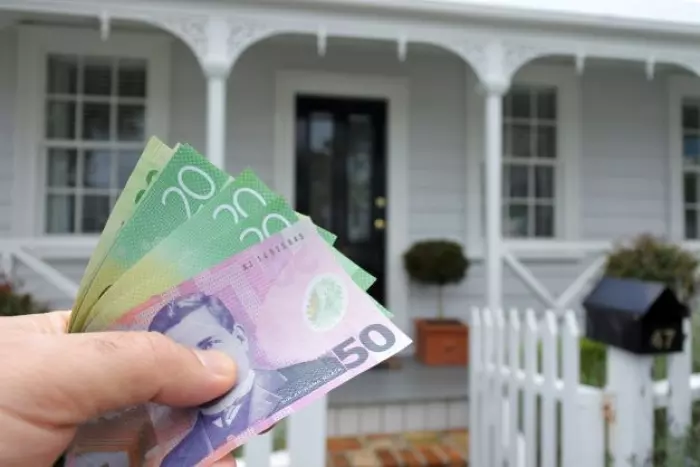BusinessDesk investments editor Frances Cook answers readers' questions about money each week. Below, you will find her expert advice. Send your own questions to [email protected].
Hi Frances,
My partner and I own our home and we have paid off roughly 85% of it.
We have been discussing our options and where we go next with our investing. I have been investing a small amount in a listed investment fund that pays quarterly dividends.
If we were to invest the majority of our useable equity in this fund, based off the lowest dividend rate of the past four years, we could pay off the "equity" loan weekly repayment with the dividend payments.
This would essentially free up our current income that is paying off the mortgage and have our invested money working to pay off the mortgage.
Does this make sense and is this a viable option – or is there something I'm missing here?
Thanks,
S.
Hi S,
This is something that, on the face of it, sounds like a smart plan. But I have a hunch that it would be devilishly difficult to pull off in reality. Here’s why.
When you sign up to pay off a debt, like a mortgage, you lock in how much you have to pay back and at what times. Come boom times or bust, you’re committed to making that payment or losing your house.
Paid back 99% of the mortgage and just got 1% left with the bank? That house still isn’t yours, yet.
Meanwhile, investments can make you a lot of money, but that's not guaranteed. Over several years, they can create a tidy little nest-egg for you. But it’s totally normal that within that time frame you’ll have some years where you’re making lots of cash, and others where you go backwards.
In each of those years you still have to pay back that mortgage.
Dividend reliability
Now, I don’t know what type of fund you’re invested into, and what promises it has made. But even companies with a strong track record of paying out dividends can decide at any time that they need to hold on to that cash instead, to invest into the future of their business.
Or the business may make less than they expected and not have much to pay out, even if they wanted to.
We are very likely heading towards a recession, and plenty of businesses are already feeling the stress of it.
Meanwhile, the bank will still expect your mortgage to be paid.
Behind the infamous crash
Another factor that makes me unsure of this plan is history.
Whenever I talk about investing in shares, I get at least one email from someone who tells me I’m irresponsible for recommending them at all.
They will inevitably cite the 1987 share market crash, which burned New Zealanders particularly badly.
Some people never recovered financially and others only recovered after many years.
I still happily recommend shares to people, because even with that crash taken into account, the share market on average has made more than 10% per year in NZ.
We also have much stricter rules and regulations guarding us against some of the company failures that happened then.
But you should know one of the factors in just why the 1987 crash was even more devastating in NZ than it was in other parts of the world, despite it being a global crash.
Many New Zealanders had used their mortgage to fund their enthusiastic share market investing.
When the market plummeted, many investments were lost entirely, and people were left mortgaged to the eyeballs and with nothing to show for it.
It was financially ruinous. I’m not surprised that some swore off the share market for life.
Do I think that you’re at risk of that happening? Probably not.
But the share market can go down unexpectedly, and it can take years to recover.
Meanwhile, the bank will expect those mortgage payments.
A new timeline
You’ve done amazingly well to get to this point. You’re so close to owning your home outright.
If I was in your shoes, I would stare at that 15% finish line and sprint for it, putting everything I could on the mortgage to get that millstone from around my neck.
After that? I would invest with abandon, knowing I was building a nest-egg for my future, without needing it to pay off the debt that (rather importantly) keeps a roof over my head.
If you’re really keen to go ahead with this, I would definitely speak to a financial adviser first. As I say, I think you’ll find it’s more complicated than you expect.
An expert opinion
I reached out to Mark Lister from Craigs Investment Partners, to get another point of view. Here’s what he had to say:
What you're essentially asking is if you should mortgage the house to invest in shares. That'll scare some readers, although it's basically no different to doing the same to fund a rental property investment.
The bank might not be as averse to this as some would think, given your home is the security (rather than the shares). They'll want some comfort in your ability to service this new mortgage, though, as well as the one you've already got.
But they might not consider the expected dividends in the same way they would your salary.
It's hard to check if your numbers stack up without knowing all the details, although it's quite possible they do.
The average pre-tax dividend yield on the NZ share market is about 4.4% right now, while some stocks (like Spark, Chorus and the higher-quality end of the listed property sector) offer as much as 7.5%.
A word of caution
Even so, you do need to tread carefully. Borrowing against the house to invest in businesses or shares can work very well (just like it can for investing in property), although you need to know what you're doing.
I'm not sure I'd advise the average do-it-yourself investor to do it, if I'm honest.
Dividends are fairly reliable and good businesses will grow them over time.
However, dividends can still fall during periods of economic weakness when company profits fall, as was the case during 2007-08, or if companies become more cautious, as they were in 2020, when some companies suspended dividends altogether.
You wouldn't want to be fully reliant on the dividends to cover the mortgage.
Choosing stocks or funds based on dividend yield can also be a dangerous game and it can lead to poor decisions.
High-dividend yields can sometimes reflect a business with problems, one with a falling dividend, or one that is out of favour with the market.
If you start zoning in on the highest yields, you might end up with some problem children in your portfolio and you'll at least be drawn to a more concentrated range of stocks.
You'll also find yourself favouring the local market, because our dividend yields are higher here than offshore, which means you won't be following the usual diversification rules.
Send questions to [email protected] if you want to be featured in the column. Emails should be about 200 words, and we won't publish your name. Unfortunately, Frances is not able to respond to every email received or offer individual financial advice.
Information in this column is general in nature and should not be taken as individual financial advice. Frances Cook and BusinessDesk are not responsible for any loss a reader may suffer.














